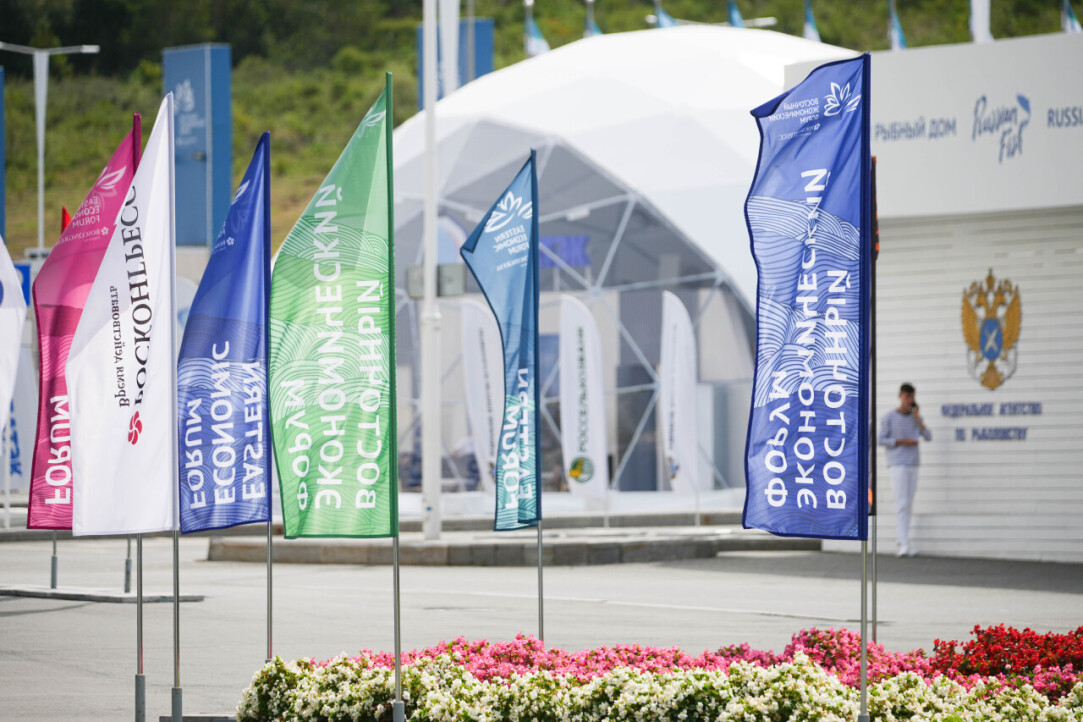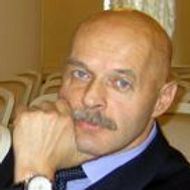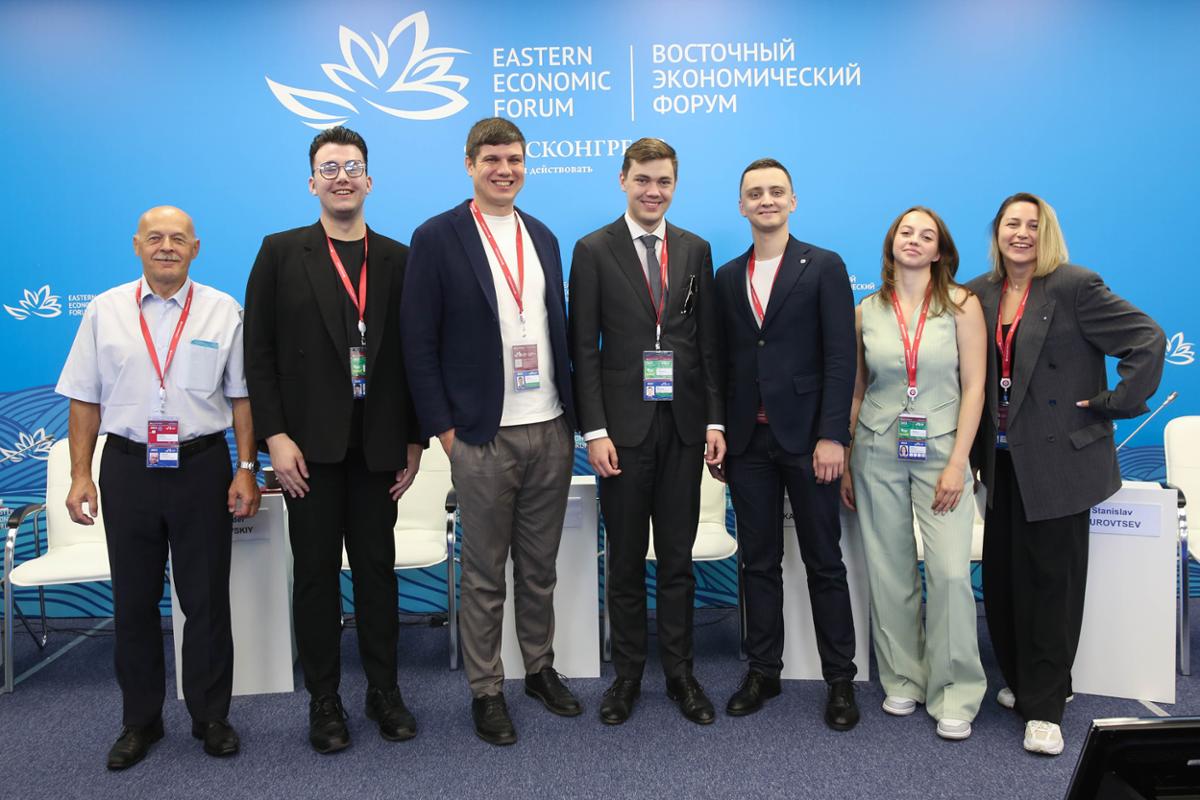HSE University-St Petersburg Summarises Results of Eastern Economic Forum

On September 10–13, Vladivostok hosted the Eastern Economic Forum (EEF), where the participants discussed the issues of the development of Russia and its relations with the countries of the Asia-Pacific region. The delegation of HSE University-St Petersburg featured representatives of the administration, professors, and students of the campus.
Alexander Khodachek, President of HSE University-St Petersburg

This year, the central topic of the forum was the results of the last ten years—at the beginning of the 2010s, the issue of preserving human potential in the Far East and Arctic was included in the permanent agenda of the Russian government.
Currently, we've managed to reduce the population outflow from the region. Industrial production in the shipbuilding sector and commercial enterprises have received a new lease of life. We can see significant development in transport and logistics infrastructure as well. Over this time, changes have also affected legislation, with the emergence of priority development areas and the 'Far Eastern Hectare' programme.
The innovations of this forum were the master plans of cities and urban agglomerations. Petropavlovsk-Kamchatsky's master plan is now ready, and Khabarovsk and Vladivostok are next in line. This tool in city design is a new trend in territory development related to the opportunity to get additional state funding.
Universities have also played their part. Far Eastern universities have enhanced their cooperation with research universities in Central Russia. Numerous agreements on double-degree programmes, internships, and joint research have come into being. There are new initiatives, for instance, 'Discover Russia Again' allowed students from Central Russia to travel to the Far East and Arctic area to conduct research.
Our campus also has such agreements. This summer, we held a 'Discover Russia Again' expedition to Petropavlovsk-Kamchatsky. I participated in it myself. Twelve students and three professors of our campus engaged in assessing the public spaces and socio-economic development of the territory.
The atmosphere of the forum continues to impress year after year. I especially like the traditional 'Street of the Far East' exhibition, which presents all the Far Eastern regions in different ways, including folklore performances and films.
Another interesting fact: this year, all the forum pavilions were very digitalised—one could see technological innovations and witness the transition to a digital economy.
Liudmila Veselova, Academic Supervisor of the Master's programme 'International Business in the Asia-Pacific Region', also shared her impressions. She participated in the forum as a speaker

This year's forum devoted a lot of attention to the international agenda, particularly cooperation between Russia and two of its most important partners: India and China. The discussions were held in the course of business dialogues 'Russia—India' and 'Russia—China'.
Russia—China
The experts noted that today, with China's share of imports increasing significantly, the load of logistics and receipt of goods has switched to the Far East Federal District. To ensure uninterrupted work, it is necessary to provide stable railroad transportation and solve the shortage of trains.
During the session, special attention was paid to small and medium-sized businesses, which are actively developing in Russia; in China, these make up 60% of the country's GDP. The participants discussed the necessity of getting connected to Chinese payment systems as well as exchanging experience in the sphere of electronic commerce.
The experts observe a number of established trends in economic relations between Russia and China. There is not only an active inflow of home appliances from China, but also the involvement of Russian companies in intensive cooperation with Chinese producers and suppliers, and the development of their own trademarks.
Another thing is that currently, in Russia, there are more than 7,500 operating Chinese companies or companies with Chinese participation, and potential investments in our country's economy from China may reach two billion roubles. There has been a marked increase in cooperation in separate regions. For example, in Primorsky Krai, trade with China has grown by 62%.
All the experts underscored the importance of developing electronic platforms. Electronic commerce in China is valued at 32 billion yuan, while in Russia, this figure is equivalent to 8 billion yuan. In many respects, this is connected with an earlier development of electronic commerce, which appeared in China in the 2000s.
They also highlighted the increased role of social media and bloggers, who help entrepreneurs to promote their products and services effectively. Many Chinese companies used to spend huge amounts on advertising. Now, active social lives and the development of personal brands help to cope with this task more easily, as clearly demonstrated by the showcases of the heads of such companies as Huawei and Xiaomi.
Russia—India
At the session devoted to cooperation between Russia and India, the experts also discussed the emerging imbalance in exports and imports between the countries. They talked about the necessity of joint work as well as enhancing imports by Indian companies. The experts underscored that the improvement of logistics routes can become a key tool for both expanding cooperation and creating joint ventures, including the sphere of pharmaceuticals.
The Indian middle class is gradually growing, and the development of tourism between the two countries can also become an additional source of income. Typically, Russian tourists mostly visit Goa Island, but India is ready to offer many other routes.
India is also interested in developing joint projects with Russia in the sphere of ecology and safety, the development of the Arctic agenda, and personnel training activities.
India trains a lot of specialists in the shipping industry, but it is ready for scientific and educational cooperation in other spheres as well.
Humanitarian cooperation
In the framework of EEF, the participants discussed not only political and economic issues, but also those in science and education, ecology and sustainable development.
At the session 'Chinese Business in Russia: Prospects of Further Growth', which was moderated by Aleksey Maslov, Professor at the HSE School of Asian Studies, it was noted that the growth of trade between the two countries was 40% in the first half of 2023 alone. Last year, the entire trade volume was 190 billion dollars; in the last six months, it has reached 115 billion dollars.
Part of the session was devoted to the training of personnel and the development of science. During the session 'Education as a Path to Self-Realisation: The Needs of the Future', Olga Petrova, Deputy Minister of Science and Higher Education, highlighted that the development of society started with the development of science and higher education. According to the latest data, there are more than 350,000 international students in Russia, around 280,000 of whom are from Asian countries. As such, it is important to build effective cooperation with partners from this region in the sphere of education and science.
At the session 'Supplying Small Businesses in the Far East Federal District with Specialists', the experts highlighted that one major problem is the lack of general personnel analytics, which prevents universities from conducting research and adjusting curricula. Without a clear system for getting data from employers, personnel demand is generally formed by the demand of large producers who participate in polls and research. The demands of small and middle-sized businesses often are left out of such analytics.
The session 'New Meanings of Asian and African Studies: Employer Demands, Business Education, and National Interests' raised pressing issues related to the training of modern specialists in Asian and African Studies.
Should we stick to the old approach and train philologists and historians or should we transform the curricula and bring in new qualifications in Asian and African studies? The session was attended by Maria Zakharova, Director of the Information and Press Department of the Ministry of Foreign Affairs of the Russian Federation. She emphasised the necessity to train modern personnel who will be in demand in the labour market and to solve the current tasks of Russian business.
Notwithstanding the importance of studying Eastern languages, a language is only a tool which supplements other skills and competencies. The experts concluded that at the moment, universities had to train modern personnel and graduate specialists at the requests of employers.
Students of HSE University-St Petersburg had a unique opportunity to participate in the forum's Youth Day. The delegation from the university included Karina Baburina and Ruslan Miftakhutdinov.

Ruslan Miftakhutdinov, student of the Master's programme 'Cross-Cultural Studies of Asia and Africa in the Context of International Relations'

At the forum, I attended discussions covering the implementation of artificial intelligence in socially important spheres. As a HR curator of the Student Council, I was particularly interested in the ideas of gamification technologies in education.
The experts raised questions and shared their experience of finding a balance between the studies and extracurricular activities of students. They paid a lot of attention to ways of building cooperation with students, adapting to their perception of the world around them, and reacting properly to existing needs. They repeatedly referred to the new 'Service Learning' course created at HSE University, which is being introduced to several Russian universities this year.
I managed to participate as a speaker in the session 'A New Kind of University: The Demands of a New Generation'. My report was devoted to a comfortable psychological environment. The main thesis was that without an opportunity to be heard, accepted and supported, there won't be any interaction at a university. Despite different values, opinions and perspectives, it is important for students, professors and administrative staff to be flexible with each other. In this context, I talked about the work of our team on mental health.
The value of forums is that they gather people who are truly passionate about what they do. This alone is reason enough to attend. Without doubt, Vladivostok has a unique charm that makes you want to come back.
Recordings of the sessions are available on the Roscongress website

